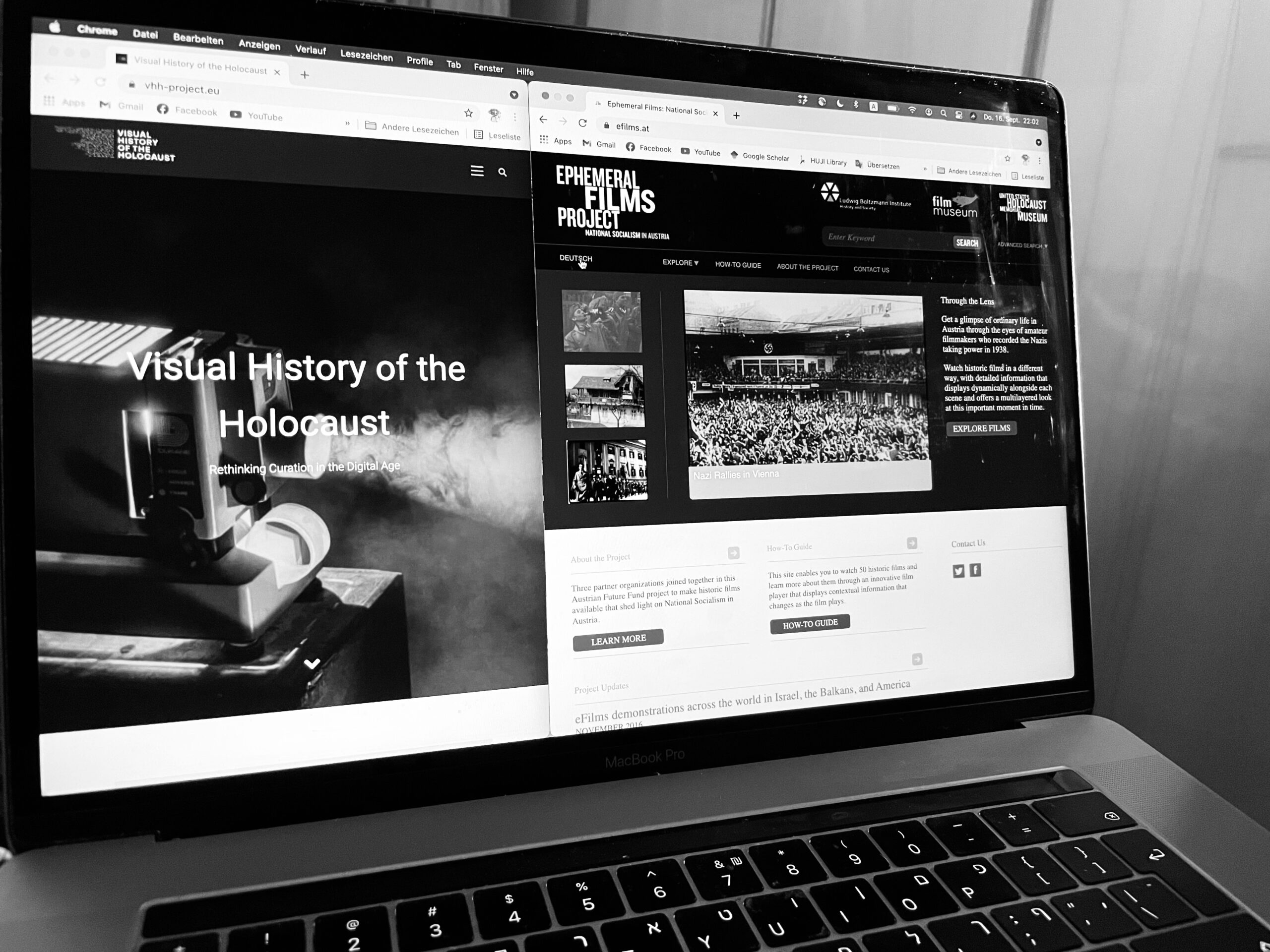Beyond the huge amount of official and semi-official filmmaking that served ideological needs in a machinery that helped realizing mass murder and genocide, private and ephemeral films offer an ambivalent insight into the social realities of the Third Reich and World War II. During the war, allied soldiers used professional and private cameras to document atrocities as early as in 1942. How do we handle these collections of moving images, and how can digitization and digital curation enable new ways of engaging with these visual remnants of the past?
The Ephemeral Films Project, a collaboration between the Ludwig Boltzmann Institute for Digital History, the Austrian Film Museum and the United States Holocaust Memorial Museum, makes available digital copies of rare amateur and non-fiction filmic documents that offer insight into the weeks and months following the “Anschluss”, as well as the events’ pre-history and aftermath. The online platform offers various possibilities to explore the footage, review annotations with information about date, location, events, content and shot types, and locate the films geographically on a map. The video player offers possibilities for interacting with the films, by watching, rewinding, stopping or manipulating the frame rate. Thereby, the platform presents the digitized moving images not just as illustrations of historical events but as a source for close inspection and active investigation.
Based on the experiences of the Ephemeral Films Project, the Visual History of the Holocaust Projectendeavors to chart new territory in the way that moving image materials of the Holocaust have been, are, and could be presented and represented in the future. In bringing together a range of source material we develop, and encourage others to develop, new methods in digital curation by dynamically linking the filmic records with photographs, text documents, and oral histories in order to discover and unlock layers of context and meaning inaccessible through traditional linear narrative modes.

